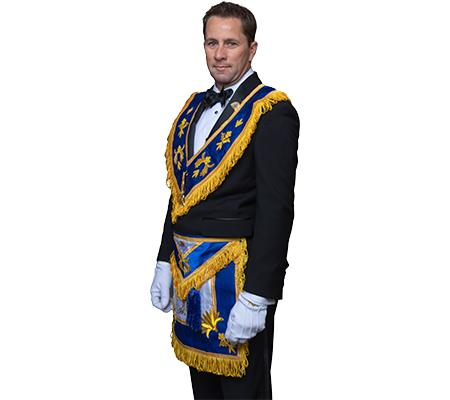
Greetings from the West,
As February is recognized and celebrated as Black History Month I thought I would share some information about Prince Hall Masonry.
On March 6, 1775, Prince Hall and 14 men of color were made masons in Lodge #441 of the Irish Registry attached to the 38th British Foot Infantry at Castle William Island in Boston Harbor, Massachusetts. It marked the first time that Black men were made masons in America.
About a year later, since the conflict between England and America had commenced, the British Foot Infantry left Boston, along with its lodge, leaving Prince Hall and his associates without a lodge. Before the lodge left, Worshipful Master Batt, gave them a “permit” to meet as a lodge and bury their dead in manner and form. This permit, however, did not allow them to do any “masonic work” or to take in any new members. Under it, African Lodge was organized on July 3, 1776, with Prince Hall as the worshipful master. It wasn’t long before this lodge received an additional “permit” from Provincial Grand Master John Rowe to walk in procession on St. John’s Day.
On March 2, 1784, African Lodge #1 petitioned the Grand Lodge of England for a warrant (or charter), to organize a regular masonic lodge, with all the rights and privileges thereunto prescribed. The Grand Lodge of England issued a charter on September 29, 1784 to African Lodge #459, the first lodge of Blacks in America. African Lodge #459 grew and prospered to such a degree that Worshipful Master Prince Hall was appointed a Provincial Grand Master, in 1791, and out of this grew the first Black Provincial Grand Lodge.
In 1797 he organized a lodge in Philadelphia and one in Rhode Island. These lodges were designated to work under the charter of African Lodge #459.
In December 1808, one year after the death of Prince Hall, African Lodge #459 (Boston), African Lodge #459 (Philadelphia) and Hiram Lodge #3 (Providence) met in a general assembly of the craft and organized African Grand Lodge (sometime referred to as African Grand Lodge #1).
In 1847, out of respect for their founding father and first Grand Master, Prince Hall, they changed their name to the Prince Hall Grand Lodge, the name it carries today. In 1848 Union Lodge #2, Rising Sons of St. John #3 and Celestial Lodge #4 became the first lodges organized under the name Prince Hall Grand Lodge.
By 1900, Prince Hall masonry had become a forum for politicized African-Americans, with Booker T Washington (1856-1915) and W.E.B. Du Bois (1868-1963) serving as active members. Throughout the 20th century, many key figures in the civil rights movement were attracted to Freemasonry. The father of Martin Luther King Jr – Martin Luther King Sr (1900-84) – was a member of the 23rd lodge in Atlanta, Georgia. Medgar Evers, the National Association for the Advancement of Colored People (NAACP) activist who was assassinated in 1963, was a 32nd-degree freemason in Ancient & Accepted Scottish Rite, Southern Jurisdiction. Alex Haley (1921-92), the writer of Roots and biographer of Malcolm X, was a 33rd-degree mason in the same order. Thurgood Marshall (1908-93), the first black member of the US Supreme Court, was supported by his Prince Hall lodge in Louisiana. Even Nelson Mandela was a Boule’/Princehall Freemason.
Many entertainers and sports figures of the 20th Century were Prince Hall Masons. Among them were actor and activist Ossie Davis (1917-2005), actor and concert base-baritone Paul Robeson (1898-1976) and the boxer Sugar Ray Robinson (1921-89) and basketball player Shaquille O’neal. The comedian Richard Pryor (1940-2005) joined a lodge in Peoria, Illinois. Musicians [Duke] Ellington, Nat King Cole, WC Handy, Dizzy Gillespie, Count Basie and Lionel Hampton were all Masons.
There now are some 5,000 Lodges and 47 Grand Lodges who trace their lineage to the Prince Hall Grand Lodge, Jurisdiction of Massachusetts. And, in 1996, The Most Worshipful Prince Hall Grand Lodge and the Grand Lodge of California joined one another in mutual recognition.
